
Without a doubt, The Naked & Famous are the NZ pop phenomenon of 2010, with a number 1 charting single in ‘Young Blood’, and now a chart-hogging album in Passive Me. Aggressive You. Gary Steel – Witchdoctor’s Music Editor – spoke with the group’s co-leader Thom Powers back in May, as they put the finishing touches to the album.
Witchdoctor – Are you still recording your album at the moment?
Thom – We’ve just finished two more tracks this weekend gone, last minute things that ended up being singles, to send away to get mixed. We finished a lot of stuff towards the end of last year, programming, electronic type things. We had these demos. The bulk of the writing was quite a way back. And then we did some sessions at the Lab just over a month ago. They’ll be sent off really soon to get mixed by a guy named Billy Fish in Los Angeles. He’s in a weird position, he’s kind of in Garbage but he’s not. He doesn’t play with the band, but he’s part of their studio process. He’s just finished working with Muse and then he’s going to us! This is the first thing we’ve had mixed by anyone else. Our latest single ‘Young Blood’, that was mixed by him as well.
WD – I was going to say it’s very broad strokes.
Thom – Yeah, very big eh. We recorded all that ourselves, all the recording and producing was us and, and then we sent it away to him, and gave him a rough concept, like ‘we want these ‘80s reverbs here’, and it’s quite fun, because things like that you can leave up to them, it’s not going to come back with a different effect on it, it’s going to come back with some kind of creative thing on it, or a way of doing it that you wouldn’t have done, and it’s like “wow!” It’s a bit of a surprise, getting them back, it’s quite thrilling.
WD – Is he doing stuff that you guys don’t have the technology to do, or is it more that he has that sense of turning something into a real…
Thom – Both. Actually both. Coz he’s using… like nowadays lots of mixes are done totally within the box, which is entirely within the computer, you can use all your electronic plug-ins, which is just ways of compressing and EQing and all that kind of stuff, and that’s great, but analogue gear… he’s using a lot of real stuff, you know. He’s got a proper home studio, which is identical to Butch Vig’s. He works with Butch Vig, they do all these things together, so they have identical setups. His studio’s amazing, and the quality of what he can do is far greater than anything we can afford to do. We can’t pay to go and sit in a studio and think ‘let’s try this’. He’s like ‘I know what to do’.
WD – How did you hook up with him?
Thom – We just went hunting for engineers, because we really wanted this album to be an album mixed by someone, produced by the band, and possibly take it overseas. We just wanted a more hi-fi sound and a bigger sound.
WD – Is the band now signed to Universal rather than Round Trip Mars?
Thom – No-no, we’ve just got a P&D deal with Universal, so they just distribute us and help us market things. But no, we’re not signed to anyone, we just decided not to do it on Round Trip Mars, we thought we’d do it ourselves. We’re still an indie band but… I don’t know if we’re lucky, or if we worked hard to get to the position of having relationships with Universal and people like C4 and stuff. And we’re still independent. It’s an interesting position to be in, I wonder if people will give a shit about it.
WD – How do you think the band’s changed since the first two EPs. Is it a really different band?
Thom – Yeah, definitely, because when we started it was just Alisa and me writing songs, going to Aaron, engineering them, help us with producing, and then we sort of got a four-piece band together, and practice just down the road actually, at a studio called 203. It’s full of cockroaches, and piranhas. We feed the cockroaches to the piranhas. That’s gross. So we had this four piece band with a bit of production, and decided at some point that Aaron should come on stage and bring that production stuff that he’d done on the record on stage, and we thought this is a cool thing we’ve got going, we’ve got all the electronic stuff that we had, that we thought we couldn’t do live, and then we started writing all the album stuff to this… thought we could do all this stuff we couldn’t do before, we can have layers and layers of crap, we can launch off triggers and loops. So it’s turned into a bigger production that’s more in keep with the kind of music we were listening to as well, like TV On The Radio and Nine Inch Nails. It’s quite a big sound, lots of layers, very cool production values. So we started writing with this 5-piece thing and then we picked up a new rhythm section, because our old one left, they moved on to other things. We’ve still got a friendship, still on good terms, just life circumstances. Ben the bass player is actually working round the corner at Neil Finn’s studio. And Jordan the drummer is off doing lots of drumming work, he’s a bit of a session musician. So we found these two friends from highschool, and now it’s much more of a band, as opposed to Alisa and I just doing what we were doing. Now Alisa and I will write demos, toss them back and forth between Aaron and I, and then we’ll try it as a live band and we’ll see what works and what doesn’t work. It gets tailored by all the different steps; everyone’s involved on all these different levels, and it’s a really great system we have. It’s really easy to do stuff, because it’s like we’ve got a new demo, and they’ll learn it and try it out and change the tempo or add a couple of fills in the practice room and take it back. It’s a pretty well oiled machine now, a really comfortable thing to work with and everyone really likes the roles we’ve got in the band. We have heaps of fun and we’re all really good friends, and it feels like a tight little band now.
WD – How do the songs come about? Does one of you take the role of the lyricist and melodies, or a combination?
Thom – Yeah it’s kind of a combination of the two. It’s sometimes dependent on whether you get on a roll. Like if you get a cool verse and chorus idea and just lyrics will come to you and you end up sticking with that until the final thing and…
WD – So sometimes it’s like a chorus that you write a rough lyric for, and you get an inspiration later on for something to change that with.
Thom – Yeah, but it depends on who’s coming up with the initial idea, like one of the tracks on the album was pretty much entirely Alisa, she just had the chorus, and the lyrics, and I buggered around with that, Aaron and I, and then some of them have been entirely me, the whole song, same thing… But then there are some we’ve written together, half a verse each, so it really changes, but Alisa and I do all the lyrics and vocals.
WD – Are you coming more from an electronic background or are you more of a traditional musician?
Thom – I’d say electronic background for me, and the same for Aaron, who grew up listening to lots of dance music. Like he was into records and playing techno 12-inchers when he was about 16. So he comes from an entirely dance orientated background. I grew up to bands, alternative music, Massive Attack, and stuff like that. So I come from a more standard rock upbringing, like the rest of the band. Same with Alisa, she listened to things like Smashing Pumpkins, stuff like that. So I guess we come from typical alternative rock musician backgrounds. But I got into the idea of songwriting very young, I liked the idea of putting together drums and guitars, so I didn’t go into a room and sit down with an acoustic guitar, I was really intrigued by learning how to work layers and getting ideas down. So even though I play guitar live, I wouldn’t say I was a guitar player. Alisa feels the same, she considers herself more a vocalist than a singer in a band, more of a working songwriter. I think it’s also a reflection of the fact that we’re interested in the studio creating things and making music and moving on to making new music – the studio process is to us the pinnacle, it’s why we got into it music, why most people get into music, they don’t go to live gigs to hear bands for the first time when they’re growing up, they listen to their favourite albums. I’ve always considered that the pinnacle.
WD – So the live thing is just an add-on to that?
Thom – From where we’re sitting, coz everything exciting about what we do comes from the studio, the written songs are fantastic to play live. Playing live’s more instantly gratifying, it’s heaps of fun and getting an audience reaction is wonderful, but even when that’s done and the real achievement and sense of ‘wow’, is when you look back at a song that you may have produced well. Especially when a fan says ‘that song was amazing blahhh!’ Anything like that is like wow, cool, that affected someone. That thing I stressed over.
WD – You mentioned influences like Nine Inch Nails. Who are your main influences, or the people that inspired you?
Thom – I think popular alternative music is just collectively amongst us all. That’s what we listen to as a band and what we’re interested in. Things like TV On The Radio and Yeah Yeah Yeah and Hot Chip. It’s popular music, and to some super pretentious indie dickheads it’s pop sellout rubbish, but to most people on the planet it’s alternative music, even if it is part of popular culture. That’s where we sit. We like popular culture music, a big umbrella of heavy metal and hip-hop and post-rock stuff and literally listen to anything, we’re pretty open-minded about what’s good.
WD – Some of your styles and sounds and melodies go back to classic ‘60s pop…
Thom – It’s really cool how people have said that before, it’s something a couple of people have mentioned, and it’s always been like really eye-opening to us, because we’re not massive retro enthusiasts. You know when that happened in the early 2000s when the Strokes came out and everyone went ‘oh the Beatles again!’ There are all these young kids who were born in my year, 1987, saying ‘we grew up listening to the Beatles and the Stones’ and it’s like rubbish, you grew up listening to the Spice Girls and Hansen and all that. But in saying that I think we all do listen to a bit of older stuff, and I remember when I was little listening to Led Zeppelin and… We haven’t done our research as far as looking backwards, but I worked in a record store for quite a while, so I know about heaps of stuff. You pick up bits, you know about… but I don’t have a massive library, collection.
WD – To me the chorus of ‘Young Blood’ reminds me of a track from the early ‘80s by Kim Wilde, called ‘Kids In America’.
Thom – Yeah, I think I know it.
WD – It’s not the same, but it does reminds me of it, the anthemic thing.
Thom – That’s really cool, thank you, that’s awesome. I see music I like in new music all the time, even though the relation might not be there, it’s just the fact that I like it, it creates the same emotional response I guess.
WD – And also, you said Nine Inch Nails, and I can’t see that in your music at all, so it’s there, but something that’s influenced you, but doesn’t necessarily come out in the music.
Thom – I’m thankful when it’s that, when your influences haven’t dictated what you sound like. You can get so worried about having done something original.
WD – Does the new stuff sound like hits to you?
Thom – It’s really hard to tell properly, because you’re closer to your music than anybody else, and you think much more about it than anyone, because you know how every bit of it was put together. Um, there’s definitely songs on there that we’ve decided we should put that as a single. Like ‘Young Blood’, it was very natural, just wrote a song and thought this sounds like it could be a single, let’s produce it like that, and finish it up like it is a single. But there are definitely tracks on there that have no chance in hell of being a single, which I’m really happy about. I’m happy about both aspects. I’m happy that we’ve got songs on there that don’t… one called ‘The Sun’… It’s a monotone vocal all the way through, it’s really intense and it sits on the ‘C’ for the whole song. I’m happy with all the extremes on the album.
WD – What are your plans around the release?
Thom – We’d love to do a tour in New Zealand. Looking at Australia, that’d be great.
WD – You’ve not done that before?
Thom – We’ve been to New York, and that’s all. CMJ, and that was crazy, doing the real band thing. But that was a showcase type thing. We’d love to get overseas, but we don’t have any immediate plans to, we’re just investigating at the moment.
WD – You must have quite a few fans from overseas who’ve found the band on MySpace and so forth.
Thom – Definitely. Strange places, too, like Iceland. Last week we had a Canadian radio station wanting us to do a phoner for the debut of ‘Young Blood’ on some rock station. I think more in Australia than anywhere else, we’ve had a bit of TV play there.
WD – Have you thought of trying to get ‘Young Blood’ on True Blood?
Thom – [laughs]. That would be genius. Always investigating that kind of thing. These deals are the only ways to make any money in the music industry anymore.
WD – You have infrastructure?
Thom – We’ve got Paul McKessar and CRS managing us. And that by default also means Campbell from CRS. But Paul is our day-to-day manager, the guy who does things for us when he doesn’t want to. [laughs]
WD – No five year, long term plan?
Thom – Yeah, get the album done and then maybe look at doing a five year plan. Getting out of New Zealand gives you a five year plan – or two years, that’s how long a band would tour an album for overseas.
WD – You guys are all early 20s, mid 20s?
Thom – Yeah, early 20s.
WD – First band?
T – Just highschool bands. This is our first real band.
WD – Are you all from Auckland?
Thom – Alisa’s from South Auckland, and the rest of us are from Rangitoto College. We all knew each other at high school. We weren’t close at high school, we were friends but… Aaron and David are a year below, and Jesse was the year above, but he’s the same age as me. We weren’t like high school buddies, but we knew each other. So Alisa is definitely the odd one out.
WD – You met Alisa in the course of events somewhere in Auckland?
Thom – Alisa and I actually met at MAINZ, we both dropped out to do this. MAINZ drop-outs. And Aaron’s a MAINZ graduate, so he’s a qualified engineer, and I think Jesse and Dave are still studying, biology. He’s going to be a scientist. He collects bugs. You know those plate displays, he can do that, he’s qualified to do that. And Jesse’s studied and whatnot, but he’s just kind of working, and doing the band now.

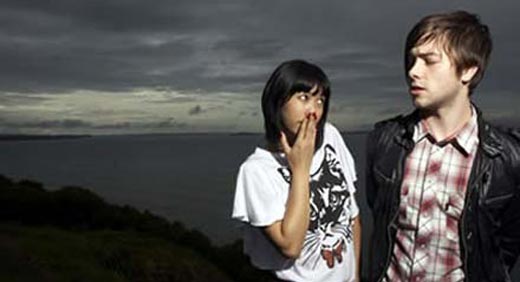



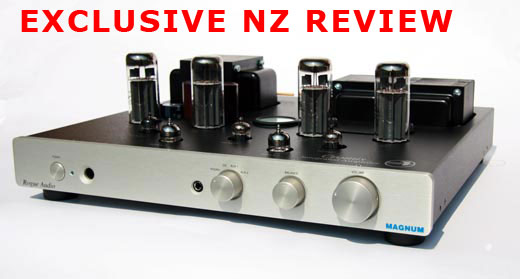

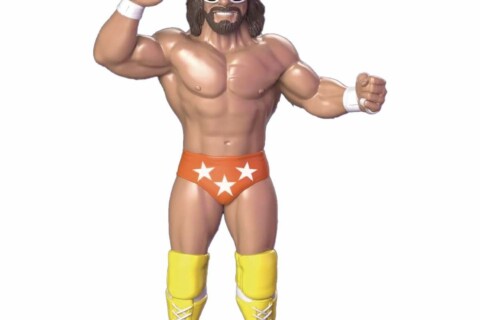
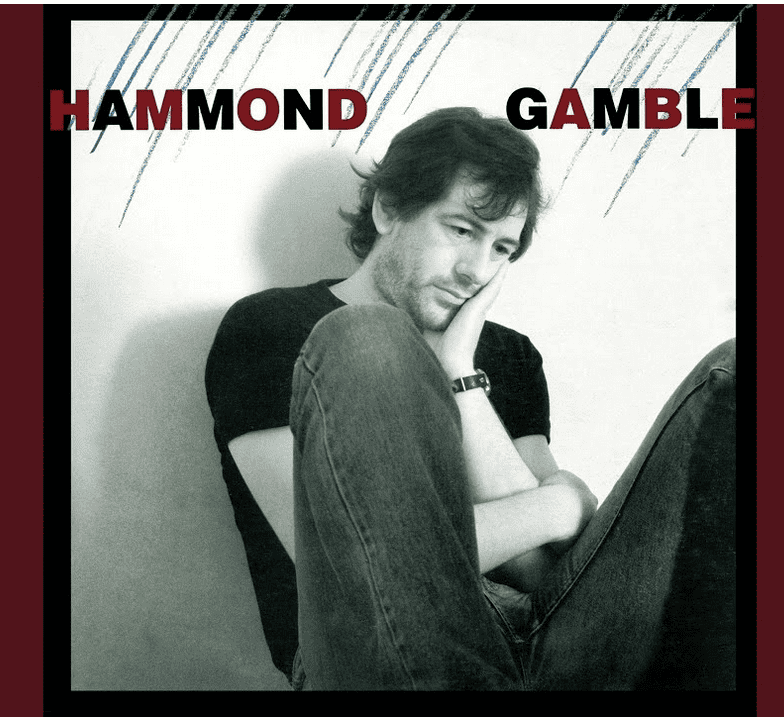
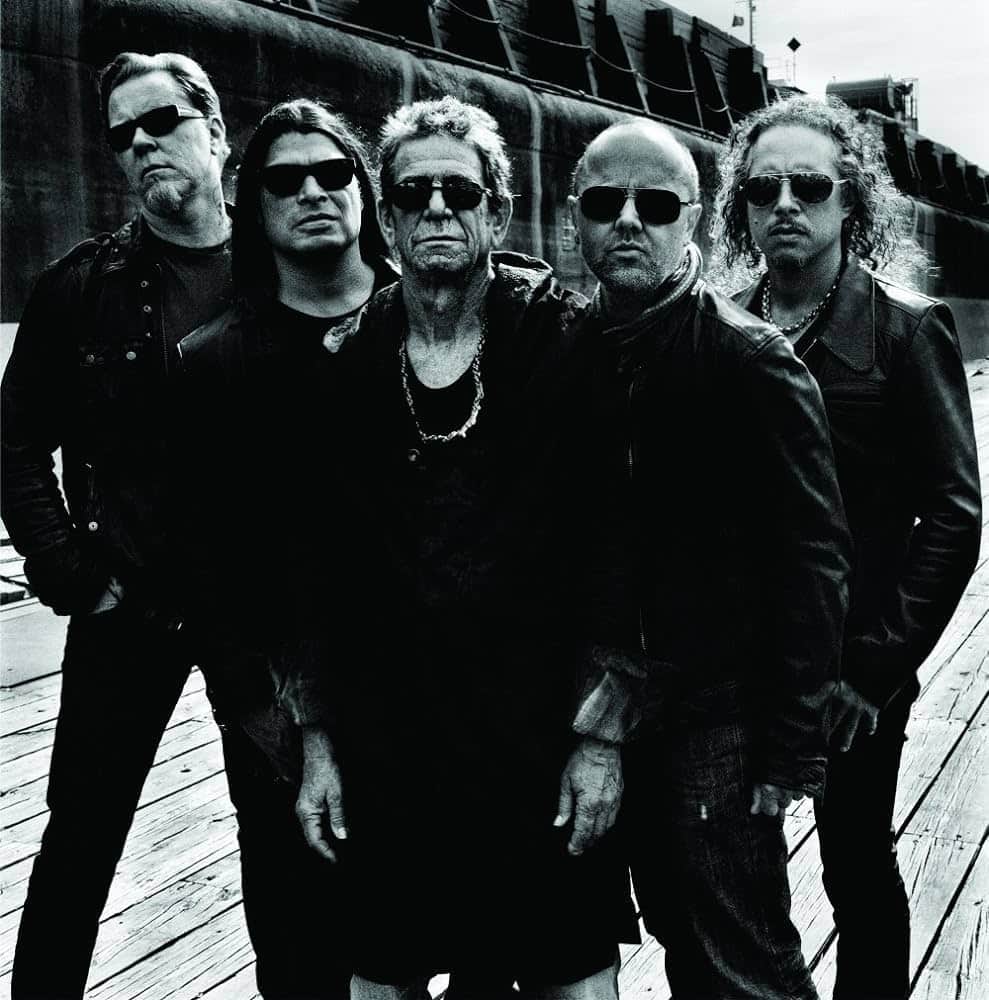
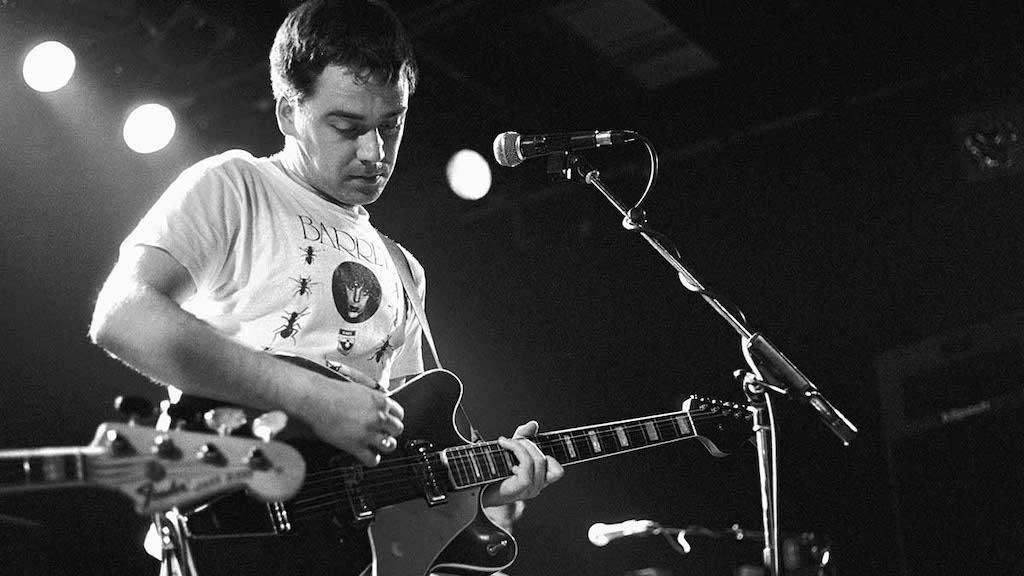

Hello, young blood has a very sad end, why is it so?